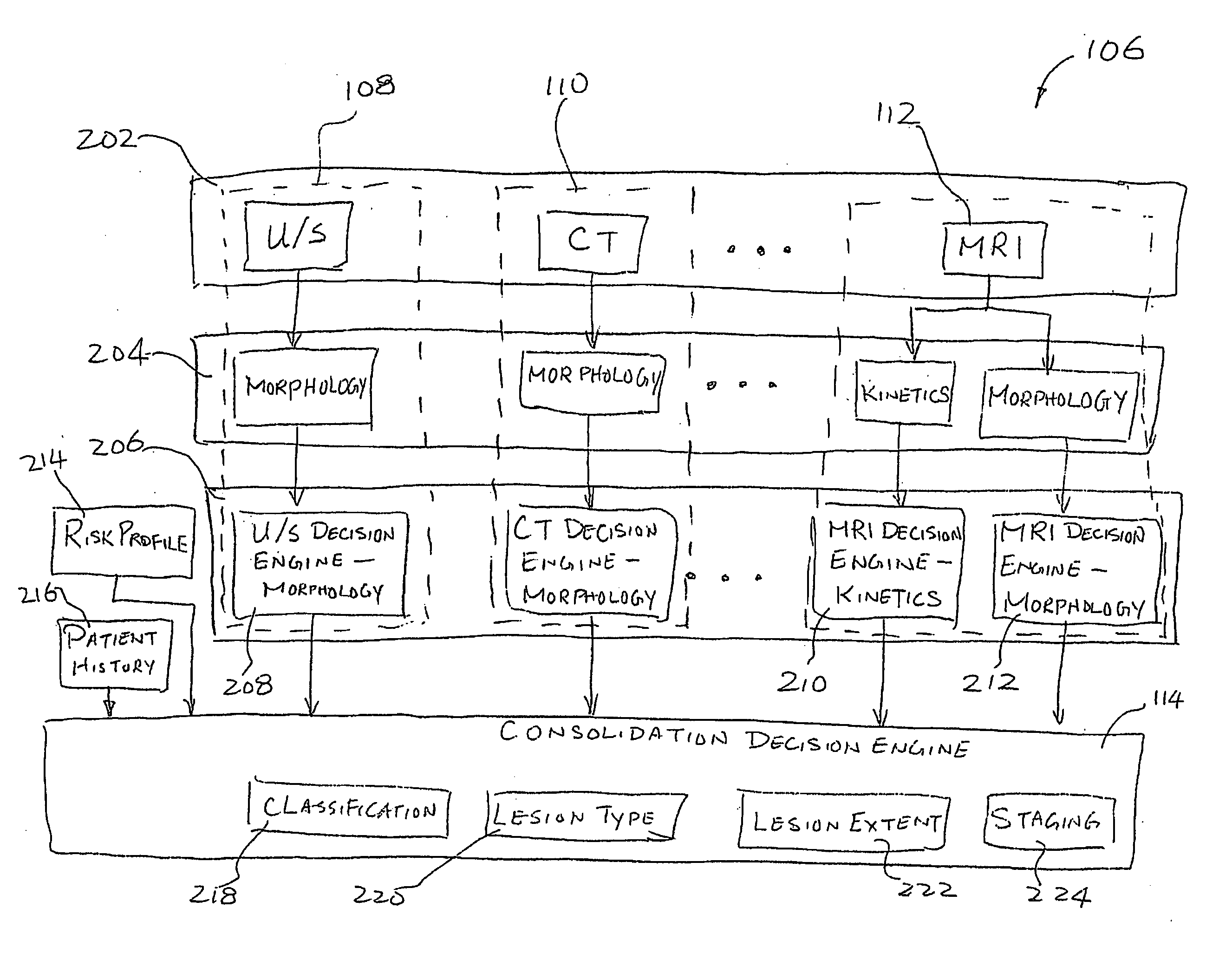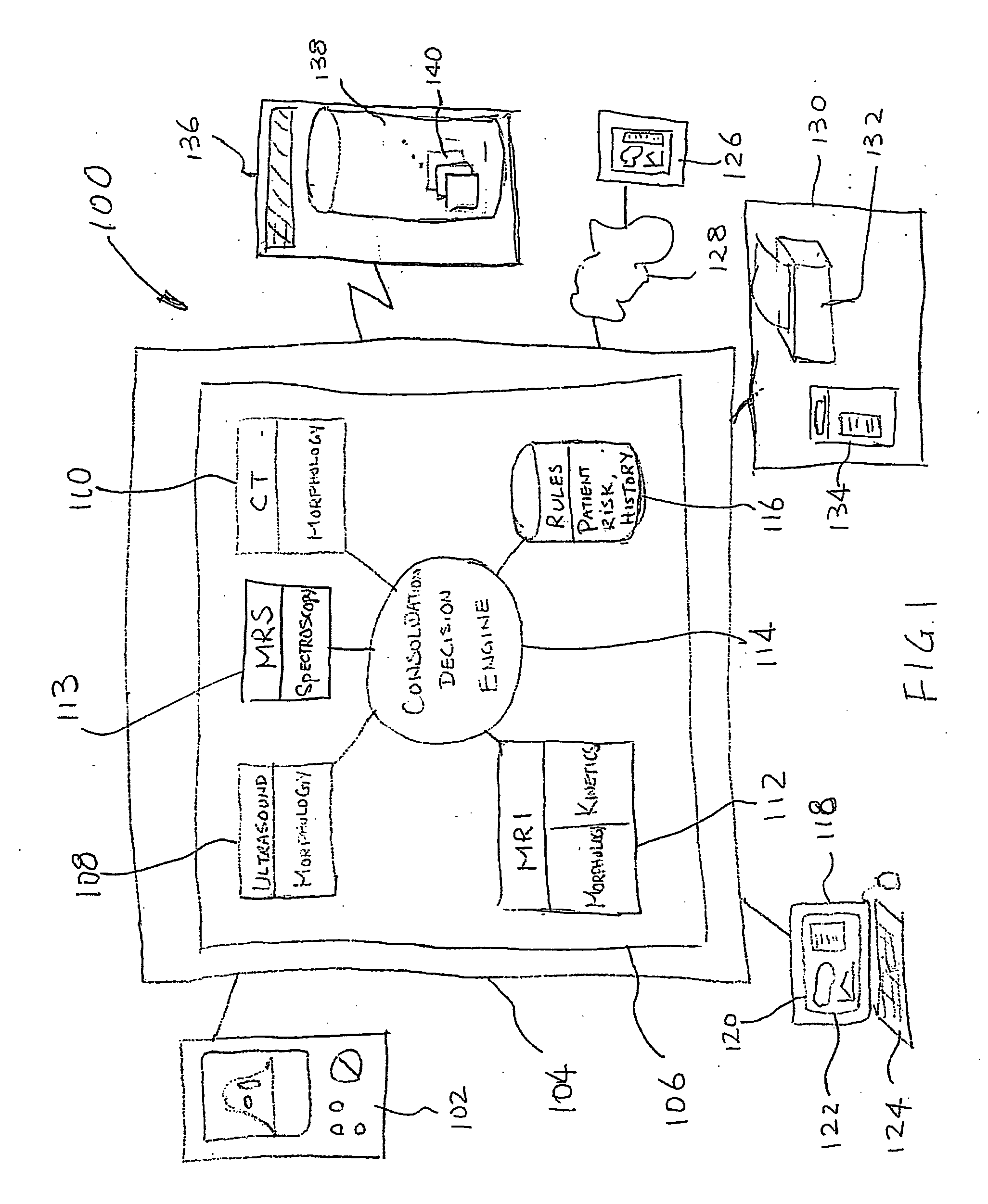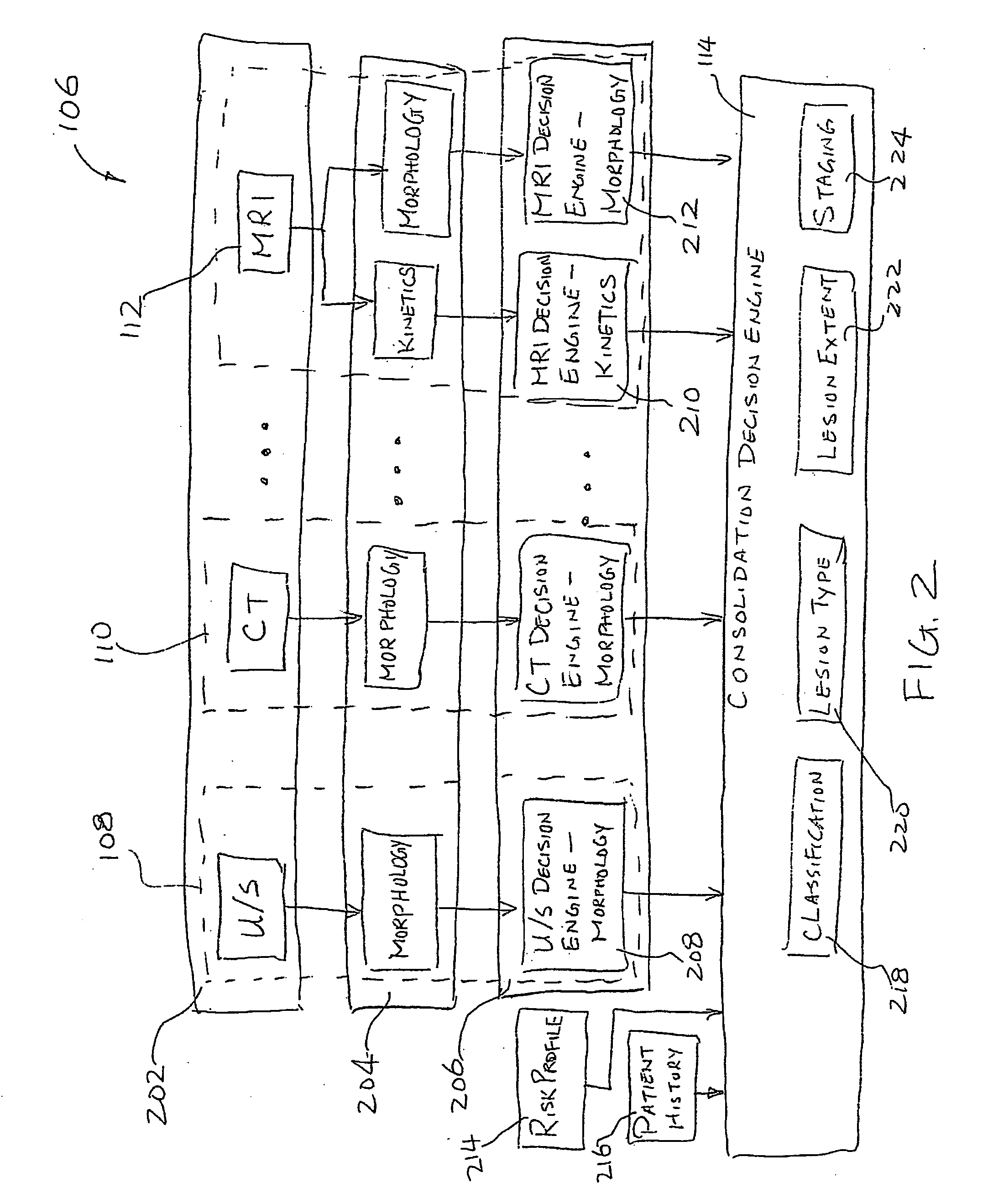Method and system of computer-aided quantitative and qualitative analysis of medical images
a medical image and quantitative and qualitative technology, applied in image enhancement, instruments, applications, etc., can solve the problems of blood pooling around the tumor, only limited specificity level, and number of unnecessary biopsies, and achieve optimal discrimination of suspicious abnormalities
- Summary
- Abstract
- Description
- Claims
- Application Information
AI Technical Summary
Benefits of technology
Problems solved by technology
Method used
Image
Examples
Embodiment Construction
[0040] The invention relates generally to the field of computer-aided analysis of medical images and detection of suspicious abnormalities. In particular, the invention relates to a method and system for processing medical images obtained from multiple modalities, including analysis of kinetics as well as morphological features.
[0041] The invention combines data from multiple modalities, including kinetics (quantitative), morphological (qualitative) and biochemical (quantitative) information to achieve an optimal discrimination of imaged suspicious abnormalities, such as imaged breast lesions. Morphological features of a lesion are generally those associated with size, shape, signal distribution within a mass, or border characteristics of the lesion. They include features such as whether a lesion is a mass having a round, oval or lobular shape, a mass with smooth, irregular or spiculated borders, or a mass having homogeneous, peripheral or ductal enhancement. Morphological features...
PUM
 Login to View More
Login to View More Abstract
Description
Claims
Application Information
 Login to View More
Login to View More - R&D
- Intellectual Property
- Life Sciences
- Materials
- Tech Scout
- Unparalleled Data Quality
- Higher Quality Content
- 60% Fewer Hallucinations
Browse by: Latest US Patents, China's latest patents, Technical Efficacy Thesaurus, Application Domain, Technology Topic, Popular Technical Reports.
© 2025 PatSnap. All rights reserved.Legal|Privacy policy|Modern Slavery Act Transparency Statement|Sitemap|About US| Contact US: help@patsnap.com



